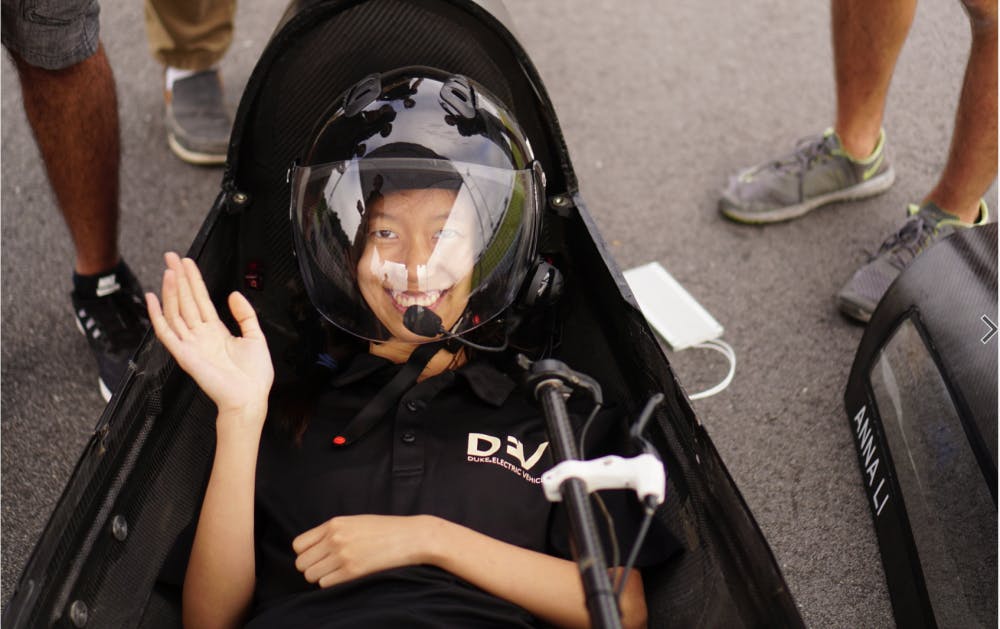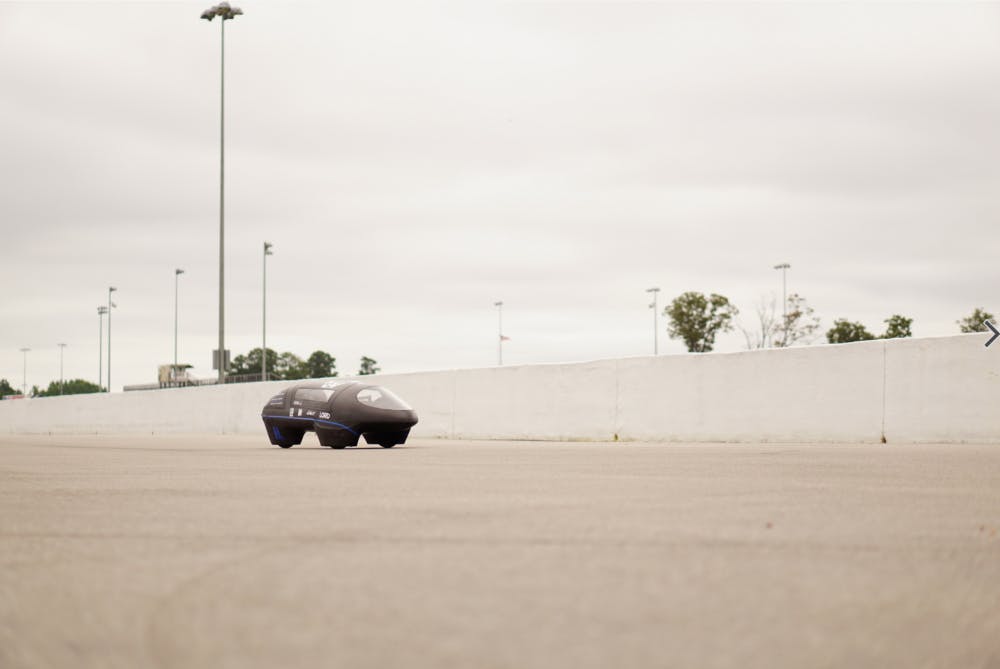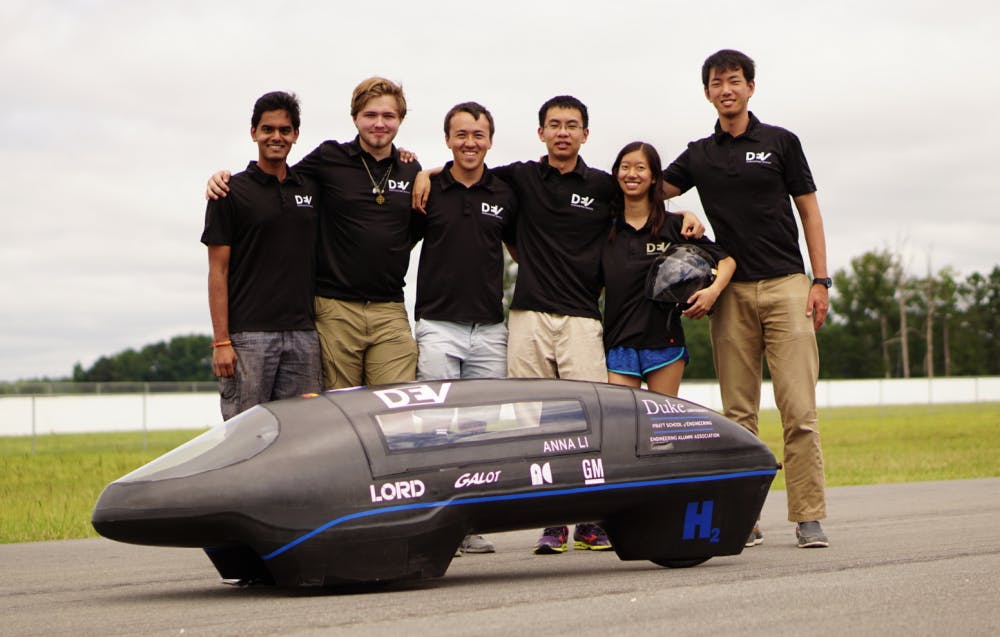When Patrick Grady, Pratt '18, was a first-year, Duke Electric Vehicles was just another club at the activities fair.
Four years later, it made him a world-record holder.
With Grady as president, the club's hydrogen fuel-cell vehicle shattered the Guinness record for the world's most efficient vehicle, one that had been set by a much larger team. The prototype vehicle set a new bar for efficiency at 14,573 miles per gallon in a run July 21 at Galot Motorsports Park in Benson, N.C.
“I remember thinking that beating this record was the mountain no one thought they could climb,” Grady said.
The team was certified as world record holders by Guinness World Records Tuesday.
In April, the club trounced the competition in the Shell Eco-marathon—which draws hundreds of teams from schools around the country that make innovative vehicles—in both the electric battery and the hydrogen fuel-cell prototype divisions.

But after taking home an award for the second year in a row, Grady and his team of 17 Duke students set their sights on something higher—the hydrogen fuel-cell efficiency record.
Grady poured in roughly 1,000 hours to the project during the school year and continued to work over the summer.
Anna Li, the car’s driver and Trinity '18, and her friend—Grady’s girlfriend—were traveling after graduation, and his girlfriend didn’t hear back from Grady much, Li said. Grady’s girlfriend then texted him joking that she would tell Li to crash the car. Her phone buzzed five minutes later.
The car replaces a traditional engine with one that runs on a reaction between hydrogen and oxygen—and weighs just 50 pounds, Li said.
The lack of suspension coupled with rocks and dirt flying in the driver’s face makes the vehicle no smooth ride—and with no ventilation, a hot one at that. But it’s one Li finds exhilarating.
“It feels a lot faster than it actually is because you’re only 5 inches off the ground and I’m laying down, no suspension,” Li said.
The team made several adjustments to the car after the competition in April, senior Shomik Verma said. Verma, whose position on the team was fuel cell lead, explained that they had problems with overheating but didn’t realize it was the issue for two days, causing some unnecessary stress.
In addition to the fuel cell, team also added a “supercapacitor bank,” which supplies the car's power when the vehicle is accelerating, making the car more efficient.
“That allows us to have a very small fuel cell instead of having a huge fuel cell that takes up a lot of space and a lot of weight,” Verma said.
The team actually beat the record by 3 percent a week before the official record-setting run, but they were disqualified for going too slowly, Li said, running at 14.9 miles per hour instead of 15.
The record-setting outing took roughly 30 minutes for Li to complete, lying down in the three-wheeled vehicle with nothing but a rod for a steering wheel.
For Verma, who said he did extensive theoretical calculations to optimize the car, the record not only meant a lot for the work he put in, but also validated that theory can be translated into reality.
“Having the world record really shows concretely that physically all of the theory is true and that we can accomplish something in real life,” Verma said.

Get The Chronicle straight to your inbox
Signup for our weekly newsletter. Cancel at any time.

Managing Editor 2018-19, 2019-2020 Features & Investigations Editor
A member of the class of 2020 hailing from San Mateo, Calif., Ben is The Chronicle's Towerview Editor and Investigations Editor. Outside of the Chronicle, he is a public policy major working towards a journalism certificate, has interned at the Tampa Bay Times and NBC News and frequents Pitchforks.

